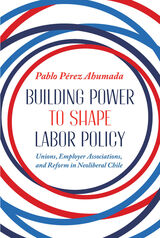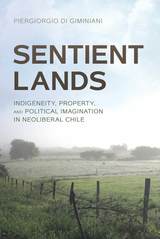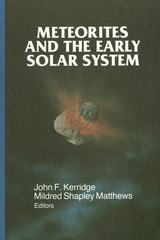2 books about Neoliberal Chile

Building Power to Shape Labor Policy
Unions, Employer Associations, and Reform in Neoliberal Chile
Pablo Perez Ahumada
University of Pittsburgh Press, 2023
During Chile’s shift to neoliberalism, the dictatorship of Augusto Pinochet passed a swath of probusiness labor legislation. Subsequent labor reforms by democratically elected progressive administrations have sought to shift power back to workers, but this task has proven difficult. In Building Power to Shape Labor Policy, Pablo Pérez Ahumada explains why. Focusing on reforms to collective labor law, Pérez Ahumada argues that analyzing how both workers and employers mobilize power to influence government policies is crucial for understanding labor reform outcomes. He examines the relational character of power to explain how different types of power—structural, institutional, associational—interact with each other, and proposes a relational understanding of power and how it is balanced among competing social classes. While workers and employers both have a hand in shaping labor law, their influence is not equal. Analysis of recent events in Chile reveals how the balance of power and the lingering effects of neoliberalism manifest in labor reform.
[more]

Sentient Lands
Indigeneity, Property, and Political Imagination in Neoliberal Chile
Piergiorgio Di Giminiani
University of Arizona Press, 2018
In 1990, when Augusto Pinochet’s 17-year military dictatorship ended, democratic rule returned to Chile. Since then, Indigenous organizations have mobilized to demand restitution of their ancestral territories seized over the past 150 years.
Sentient Lands is a historically grounded ethnography of the Mapuche people’s engagement with state-run reconciliation and land-restitution efforts. Piergiorgio Di Giminiani analyzes environmental relations, property, state power, market forces, and indigeneity to illustrate how land connections are articulated, in both landscape experiences and land claims. Rather than viewing land claims as simply bureaucratic procedures imposed on local understandings and experiences of land connections, Di Giminiani reveals these processes to be disputed practices of world making.
Ancestral land formation is set in motion by the entangled principles of Indigenous and legal land ontologies, two very different and sometimes conflicting processes. Indigenous land ontologies are based on a relation between two subjects—land and people—both endowed with sentient abilities. By contrast, legal land ontologies are founded on the principles of property theory, wherein land is an object of possession that can be standardized within a regime of value. Governments also use land claims to domesticate Indigenous geographies into spatial constructs consistent with political and market configurations.
Exploring the unexpected effects on political activism and state reparation policies caused by this entanglement of Indigenous and legal land ontologies, Di Giminiani offers a new analytical angle on Indigenous land politics.
Sentient Lands is a historically grounded ethnography of the Mapuche people’s engagement with state-run reconciliation and land-restitution efforts. Piergiorgio Di Giminiani analyzes environmental relations, property, state power, market forces, and indigeneity to illustrate how land connections are articulated, in both landscape experiences and land claims. Rather than viewing land claims as simply bureaucratic procedures imposed on local understandings and experiences of land connections, Di Giminiani reveals these processes to be disputed practices of world making.
Ancestral land formation is set in motion by the entangled principles of Indigenous and legal land ontologies, two very different and sometimes conflicting processes. Indigenous land ontologies are based on a relation between two subjects—land and people—both endowed with sentient abilities. By contrast, legal land ontologies are founded on the principles of property theory, wherein land is an object of possession that can be standardized within a regime of value. Governments also use land claims to domesticate Indigenous geographies into spatial constructs consistent with political and market configurations.
Exploring the unexpected effects on political activism and state reparation policies caused by this entanglement of Indigenous and legal land ontologies, Di Giminiani offers a new analytical angle on Indigenous land politics.
[more]
READERS
Browse our collection.
PUBLISHERS
See BiblioVault's publisher services.
STUDENT SERVICES
Files for college accessibility offices.
UChicago Accessibility Resources
home | accessibility | search | about | contact us
BiblioVault ® 2001 - 2024
The University of Chicago Press









